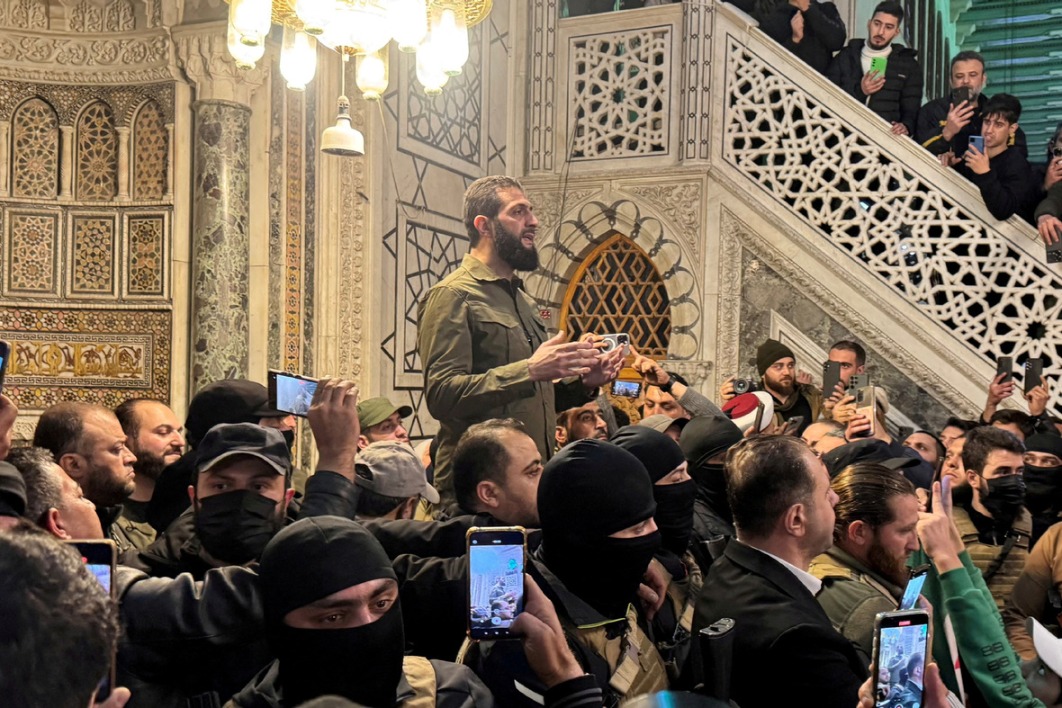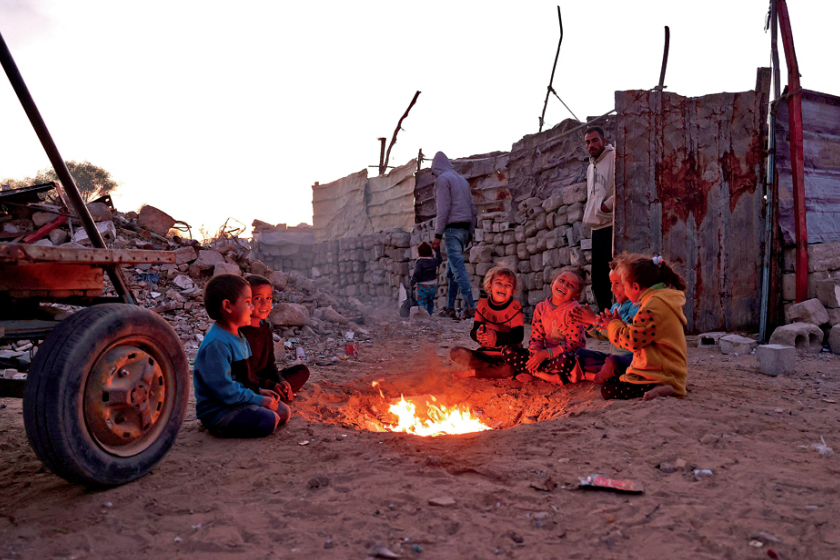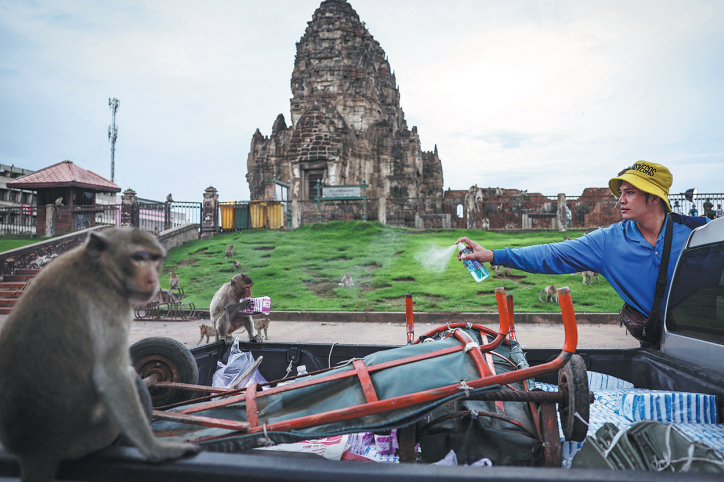Israel claims to have destroyed 'most' of Syria's advanced weapons stockpiles

JERUSALEM -- Israel's military said Tuesday that it had struck "most" of Syria's advanced weapons in 350 airstrikes across the country, including in Damascus, over the past 48 hours.
A Xinhua correspondent reported that Israeli armored personnel carriers were seen on Tuesday in the demilitarized zone, a United Nations-monitored buffer area established between the two countries under the 1974 Disengagement Agreement.
Israeli forces entered the area on Sunday, with Prime Minister Benjamin Netanyahu emphasizing that he had ordered the move to prevent "hostile forces" from seizing the territory after the fall of Syria's Bashar al-Assad's government.
The large-scale operation dismantled "most of the strategic weapons stockpiles in Syria," the Israel Defense Forces (IDF) said in a statement, adding that the aim was to prevent those weapons from "falling into the hands of terrorist elements."
"Manned aircraft flew hundreds of hours over Syrian airspace, conducting over 350 aerial strikes together with fighter jets," the military said, noting that the strikes targeted anti-aircraft batteries, Syrian Air Force airfields, and dozens of weapons production sites in Damascus, Homs, Tartus, Latakia, and Palmyra.
According to the statement, "numerous strategic weapons were neutralized," including Scud missiles, cruise missiles, surface-to-sea, surface-to-air and surface-to-surface missiles, drones, fighter jets, attack helicopters, radars, tanks, hangars, and other military assets.
Overnight, Israeli Navy missile ships struck two Syrian naval facilities simultaneously, hitting the ports of Al-Bayda and Latakia. The military said 15 Syrian naval vessels were docked there, and "dozens" of sea-to-sea missiles with ranges of 80 to 190 km were destroyed.
Israel is closely monitoring developments in Syria. On Tuesday evening, Netanyahu, in a video statement from the Kirya military base in Tel Aviv, said he hoped for ties with Syria's new government.
However, he warned that if the new leadership "allows Iran to re-establish itself in Syria, or allows the transfer of Iranian weapons, or weapons of any kind, to Hezbollah, or attacks us -- we will respond forcefully, and we will exact a heavy price."
Earlier on Tuesday, Israeli Defense Minister Israel Katz said Israel was establishing a new "sterile defense zone" in the buffer.
The incursion has faced criticism from regional countries, including Iran, Iraq, Türkiye, Qatar, and Saudi Arabia, and prompted calls from the international community for respect for Syria's sovereignty.
Israel launched the large-scale operation while continuing its offensive in the Gaza Strip and maintaining ground forces in southern Lebanon, where a ceasefire agreement with Hezbollah took effect in late November.

































